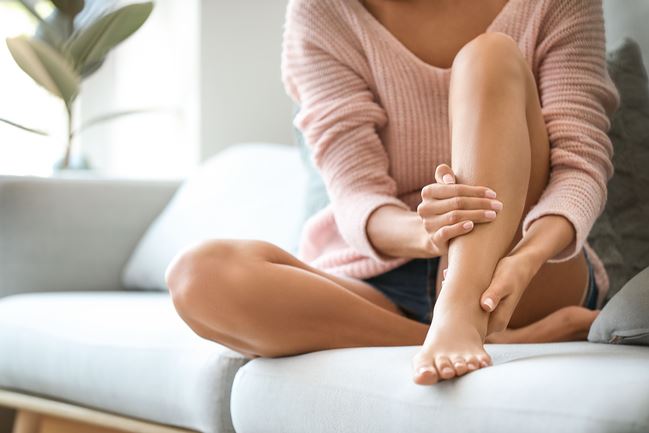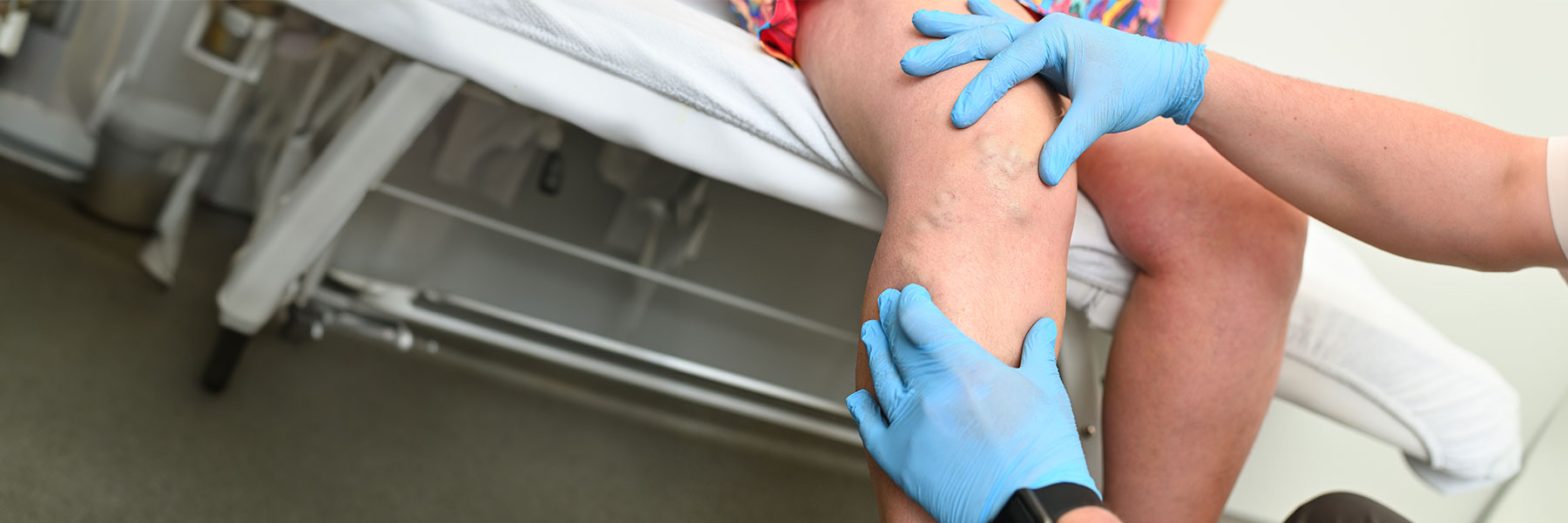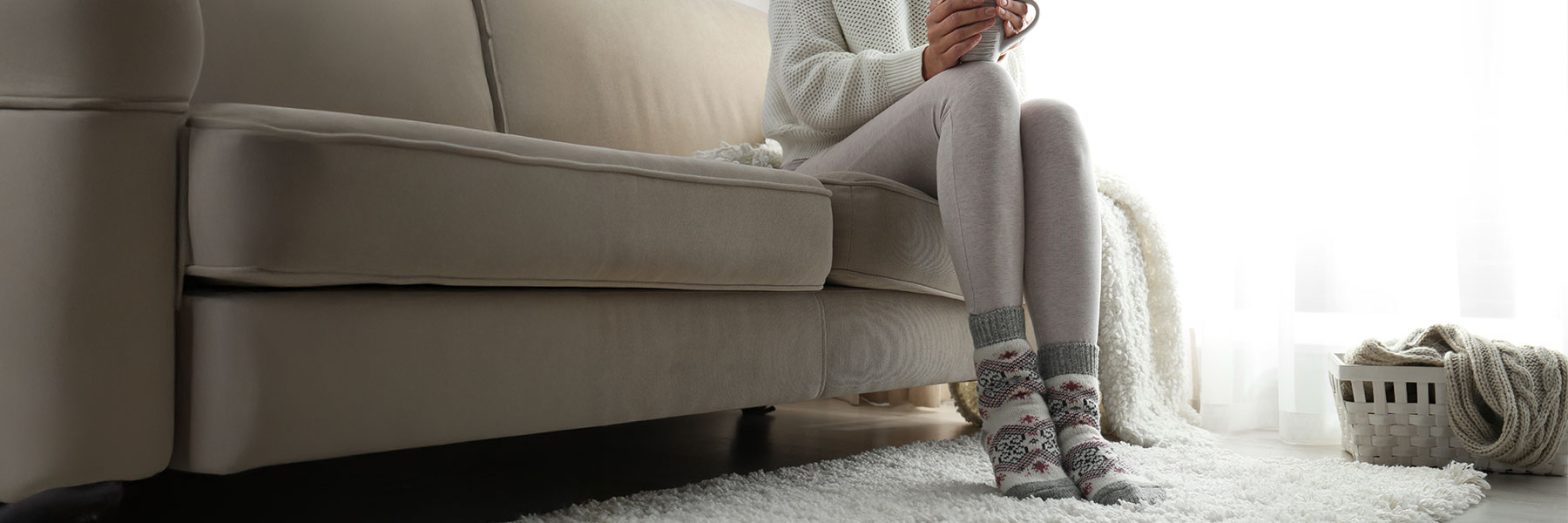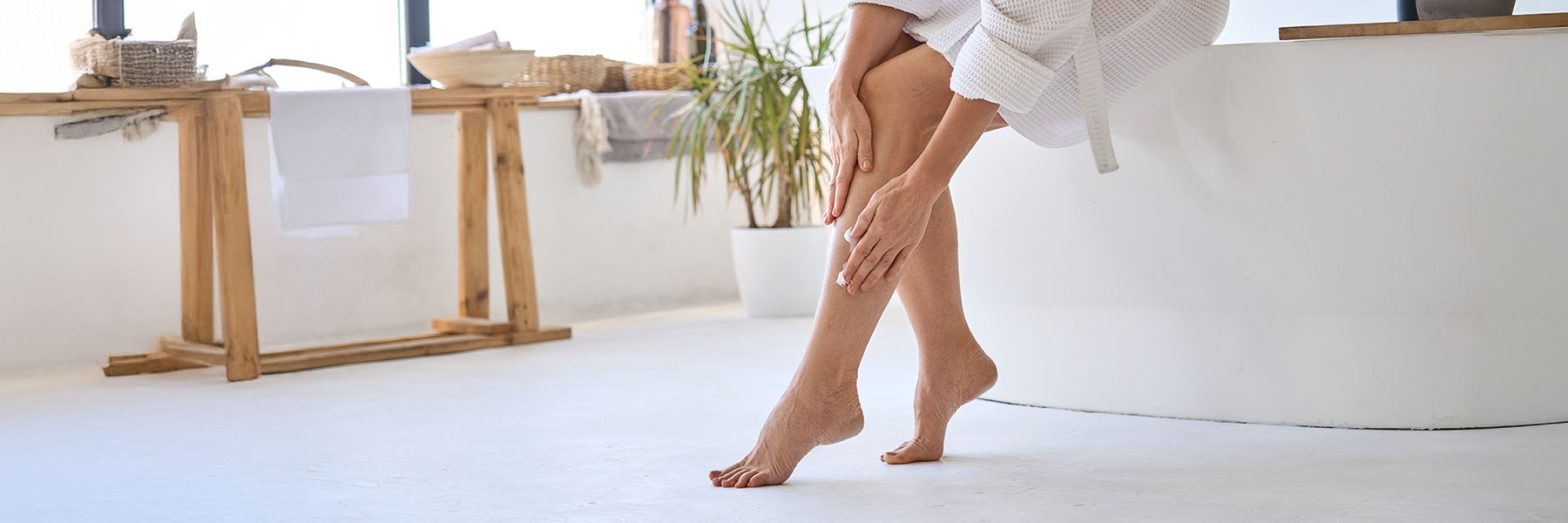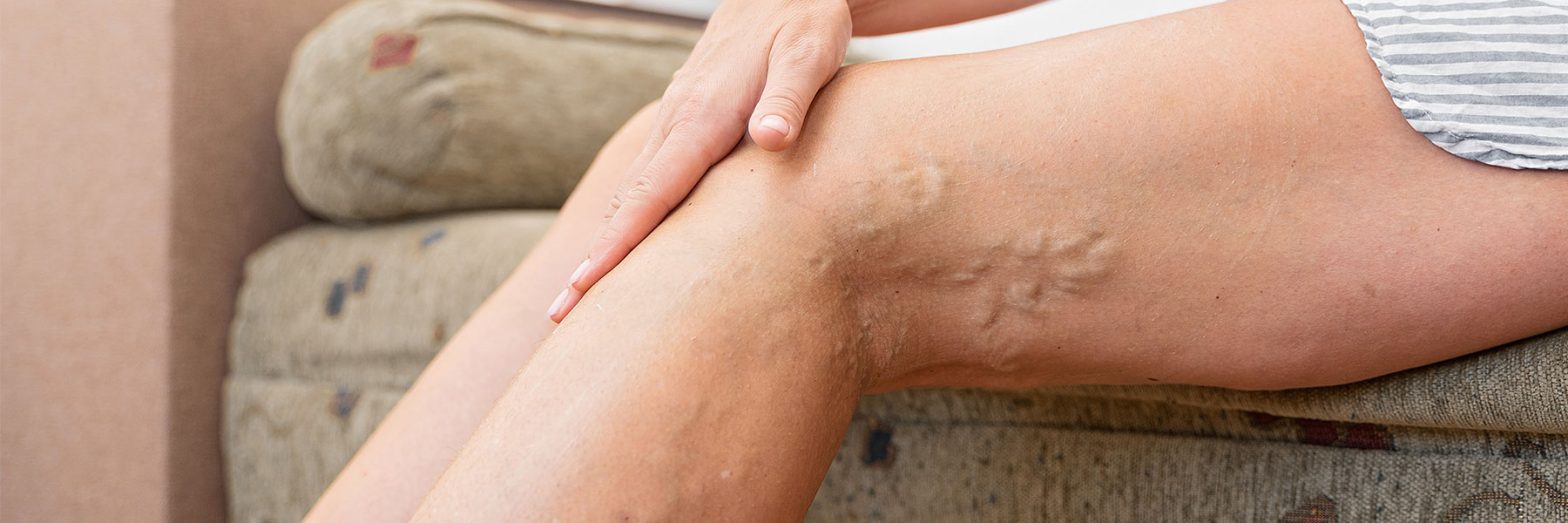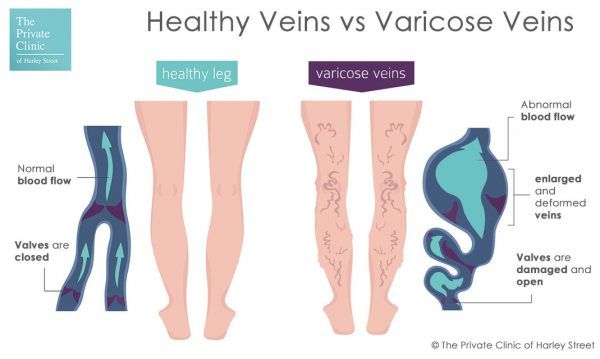
The Menopause & Varicose Veins: What you need to know
For many women, varicose veins can prove to be a particularly troublesome issue during the menopause. This is because changes to a woman’s hormone levels during the menopause can increase the likelihood of varicose veins occurring. It is important to understand the delicate interplay between key hormones during this phase of a woman’s life to better understand the issue.
Oestrogen and progesterone are the two main hormones influence vein health.
How do oestrogen and progesterone affect vein health?
These hormones have a beneficial impact on the vein wall support and the function of the cardiovascular system. Blood vessel walls contain receptor sites for these hormones, which allow the hormones to efficiently force blood flow around the body via veins, arteries and capillaries. However, when the levels of these hormones drop due to the menopause, blood vessel walls can lose their strength and flexibility, resulting in blood pooling or collecting in the areas of weakness and causing varicose veins.
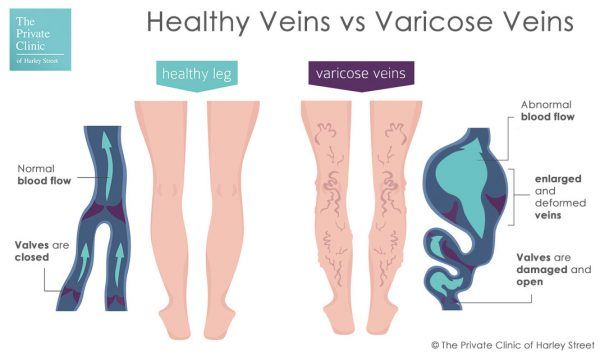
How to minimise the risk of varicose veins in the Menopause?
Once a varicose vein has formed, it is unlikely to disappear on its own, unless you opt to have the veins treated. There are several steps that women can take to minimise the risk of developing varicose veins during the menopause. Choosing a healthy, balanced diet, and adopting several lifestyle changes can help to reduce the risk of the problem occurring.
The top 5 areas that can help reduce varicose veins during Menopause
- Vitamin C Intake: Vitamin C, like oestrogen, acts as a vital aid in giving strength and flexibility to blood vessel walls. The vitamin works to maintain and replenish collagen levels, a key structural protein found in skin and artery walls. Eating plenty of green leafy vegetables along with citrus fruits and berries is a great way to boost these levels naturally.
- Healthy Fats: Choosing to consume healthier fat sources is also vital when it comes to maintaining optimal cardiovascular health. Saturated fats and triglycerides increase the risk of artery walls clogging, so swap red meats, dairy products and processed food options for the healthier omega-3 fats found in oily fish, nuts, avocados and seeds.
- Weight management: Being overweight puts the cardiovascular system under extra pressure, so by adopting a sustainable weight loss plan, you can reduce your risk of developing varicose veins during the menopause, while also benefitting your overall general health. Achieving a healthy BMI should be your number one goal in this respect.
- Frequent exercise: If you sit or stand for long periods, the blood pooling effect can intensify, so make sure to take exercise breaks as often as you can to get your body moving.
- Improving leg strength: The legs are where most varicose veins occur, so keep these parts of your body as fit as you can to avoid developing problems in these vulnerable areas. Cycling, walking, running or even a dance class is a great way to keep this part of the body toned and active. Or seek out physiotherapy if you have mobility problems. Experts can then advise you on a low-impact exercise program that works for your specific needs.
Treating Menopause-related varicose veins
When taken together, these holistic methods can boost your chances of avoiding varicose veins when the menopause hits. But if you do develop them, or if you currently experience the condition, then a variety of varicose vein treatments are available to remove them. The Private Clinic offers several effective clinical treatments that generate impressive long-lasting results.
Endovenous Laser Ablation (EVLA)
The Private Clinic’s Endovenous Laser Ablation (EVLA) treatment is one of the most popular varicose vein removal treatments.
How does EVLA work?
The treatment involves inserting a small laser optical fibre into the problematic vein. Laser light is then emitted which works to heat up and collapse the unhealthy vein. Dr Costas Kyriakides, a consultant vascular surgeon at The Private Clinic explains why this treatment is particularly popular:
“The National Institute for Health and Care Excellence (Nice) recommended endothermal ablation as a first-line treatment for varicose veins, and it’s now considered the gold standard treatment. It’s around 98 percent effective, and minimally invasive, while the risk of bleeding and infection is rare. The 1-2mm incision does not need stitching and leaves only a tiny scar, meaning that patients can be back at work the next day.” – Dr Costas Kyriakides
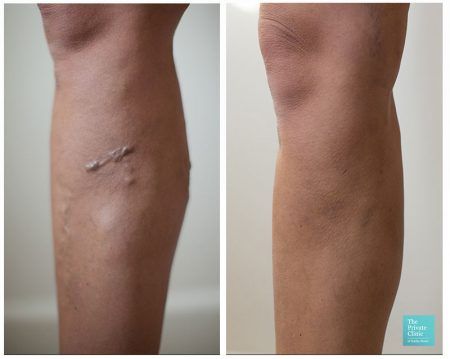
VenaSeal
Another popular treatment is VenaSeal. This is highly recommended for patients who suffer from a needle phobia as it only requires one injection per vein.
How does Venaseal work?
The treatment involves inserting a small catheter into the vein before the VenaSeal tool dispenses small amounts of medical-grade Sapheon Glue that works to close the vein. In this respect, the treatment acts as a sort of superglue to patch up the problem of blood vessels that have weakened. Mr Tahir Hussain, a consultant vascular surgeon at The Private Clinic carries out both EVLA and VenaSeal treatments and has had the VenaSeal treatment himself. He explains:
“This treatment has been around for some time now and is akin to putting superglue into the varicose veins to seal them off. The dead vein and hardened glue are then broken down and absorbed into the body. Published clinical studies have shown it to have an initial success rate of between 94 to 98 percent six months after treatment.”

“I’ve carried out this procedure in hundreds of patients, and I even had it done myself in my lunch break, after developing varicose vein symptoms at the age of 52. I had some clearly visible veins on my body, but after the quick treatment, they just shrank away and after a few months, the residual pain had completely gone.” – Mr Tahir Hussain
For patients whose veins are not suitable for EVLA or VenaSeal, other options include sclerotherapy and phlebectomy and these treatments are often treated in combination with those mentioned above. Talking to one of The Private Clinic’s experienced vascular surgeons is the best option to find a suitable treatment for menopause-related varicose veins. They will be able to go through the procedures in detail and create a personalised treatment plan that suits your own needs.
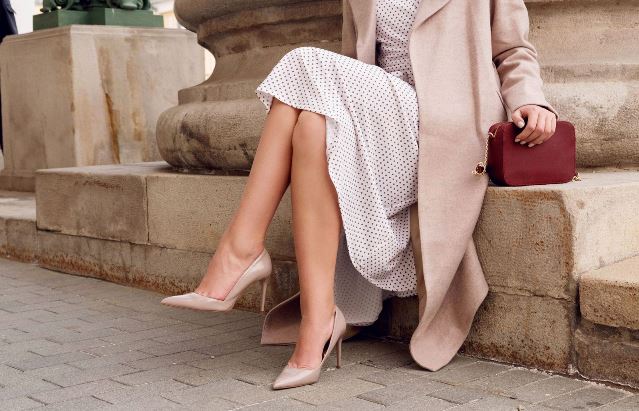
Menopause Varicose Vein Treatments at The Private Clinic
We possess over 35 years of experience providing the best and latest vein removal treatments and have treated over 7,000 patients concerned about their veins. We work with highly qualified consultant vascular surgeons who have extensive experience in treating varicose veins for women going through the menopause. View our varicose vein before and after photo results, or download our varicose vein treatment brochure. You can contact us to book a free varicose vein phone or video consultation today by calling us on 0333 920 2471 or using our varicose vein online contact form.
In-person consultations are also available at our vein clinics located across the UK:
- London Harley Street Veins Clinic
- Bexhill Veins Clinic
- Birmingham Veins Clinic
- Bournemouth Veins Clinic
- Bristol Veins Clinic
- Leeds Vein Clinic
- Manchester Veins Clinic
- Northampton Veins Clinic





